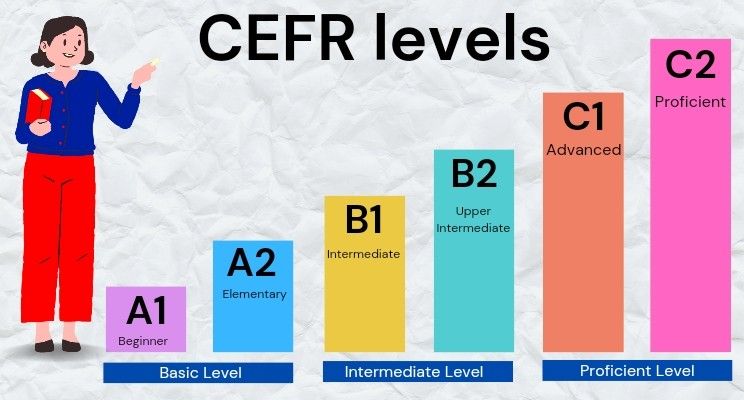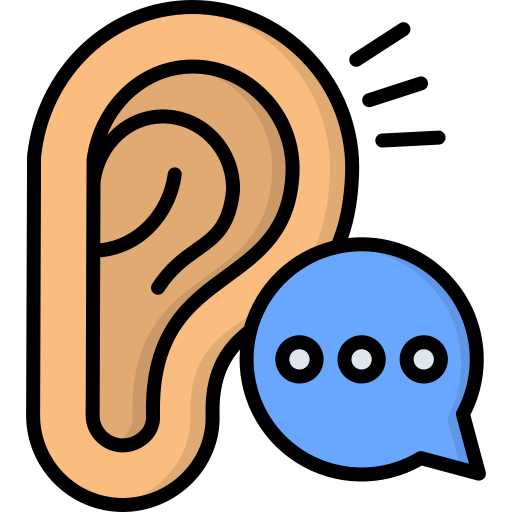
This logo isn't an ad or affiliate link. It's an organization that shares in our mission, and empowered the authors to share their insights in Byte form.
Rumie vets Bytes for compliance with our
Standards.
The organization is responsible for the completeness and reliability of the content.
Learn more
about how Rumie works with partners.
Are you planning to study abroad and pursue success in your English test (IELTS, Cambridge, TOEFL, CELPIP)?

Taking an exam to obtain a certificate to prove your ability and skills in the English language requires planning, commitment, and understanding of the test structure and the goals of every level to prepare yourself for that challenge.
Thanks to a framework called the Common European Framework of Reference for Languages (CEFR), it's now easy to understand all the qualifications you need to demonstrate your English skills to educational institutions and employers around the world, no matter the type of test you'll take.
What is CEFR?
In the Common European Framework of Reference for Languages (CEFR), language ability is described by an international standard. The CEFRoutlines the stages of learning a new language, detailing various competencies and sub-competences without focusing on any specific language, ensuring broad applicability. Mastery of each skill is described progressively across six English levels of proficiency, from beginner to proficient (A1 to C2).
 Image by Everything About French. To hear an audio version of the information in the image above, click the play button on the audio player below:
Image by Everything About French. To hear an audio version of the information in the image above, click the play button on the audio player below:
This allows teachers, learners, and others involved in language education and assessment to understand the levels of various qualifications easily. It also enables employers and educational institutions to compare your qualifications with other exams within their country.
To learn more about the CEFR English levels of proficiency, watch the video below:
Describing Level B2 (Upper Intermediate)
In order to achieve a B2 in English, you must know what skills you need to develop or enhance.
According to the British Council, learners at the B2 Upper Intermediate level are able to comprehend the key points of complex texts. They can engage in conversations with a degree of fluency and ease. Additionally, they can produce clear and detailed writing on various topics and articulate their opinions effectively.

You're going to demonstrate mastery of level B2 by excelling in these basic skills:
1. Listening
Comprehend standard spoken language at a normal pace.

2. Speaking
Offer pertinent explanations and arguments in discussions on familiar topics.
"Present clear, detailed descriptions on a wide range of subjects" related to your interests.
 3. Reading
3. Reading
Comprehend the primary concepts when reading difficult texts, including modern literary works, articles, and reports.
4. Writing
Writeclear and detailed essays on topics that align with your interests or field of expertise.
Write letters "highlighting the personal significance of events and experiences."

If you want to learn more details about the expected skills, check out CEFR's assessment grid.
Resources to Practice Your Skills to Achieve B2 in English
Thanks to the Internet, you can access many resourcesto practice English, improve your skills, and complement your work in the English course.
First, you should decide what type of English exam you'll take, build a study plan based on it, and look for resources that can help you reach your goal.

Generally, tests to validate English proficiency evaluate all four skills: listening, reading, writing, and speaking.

Next, you can use these suggested websites and video channels for practice before the test:
1. Listening
The British Council provides listening exercises to assist in comprehending extended, standard speech on familiar topics, including those with complex concepts. Moreover, you'll find more tips to improve other skills.
The IELTS Listening Test is a YouTube channel that posts videos every day, including listening exam practice and examples of speaking tests.
2. Reading
JForrest English is a YouTube channel where you can find B2 reading practices.
Best My Test is a website where you'll find example tests for reading.
3. Writing
The website TST Prep offers essay samples, writing structure, length words, and advice on how to finish the writing part of the TOEFL exam.
The Cambridge English website contains tips to improve your writing skills. You can write different tasks and you'll receive feedback immediately.
4. Speaking
IQ Global is a YouTube channel that offers helpful tips and sample questions to improve your skills for the speaking part.
SMASH English - Cambridge English Exam Preparation is a YouTube channel that includes recommendations to avoid mistakes in the speaking Cambridge test.

Quiz
Stella wants to study abroad. What can she do to validate her English proficiency? Select all that apply:
Creating a plan and practicing all the CEFR skills frequently is the best way to achieve her goals for an English exam.
Take Action
Now it is time to start finding success as you work your way up CEFR's English levels of proficiency!

This Byte has been authored by
Mercedes Salas
E-learning Design Student
